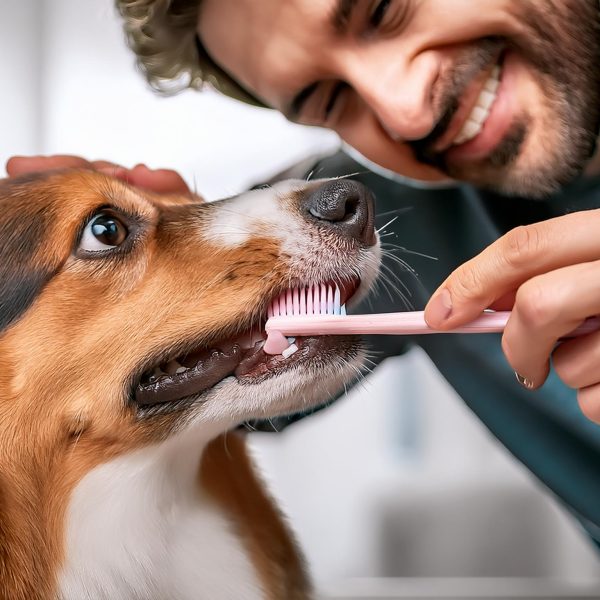Like us, our beloved pets can experience allergies that impact their well-being. It’s crucial for pet owners to spot the signs of allergies in their furry friends to provide timely care and effective treatment. In this guide, we will explore the types of allergies pets can have, how to spot their symptoms, and steps to take for proper treatment.
Types of Pet Allergies:
Allergies in pets generally fall into three main categories: flea allergy dermatitis, environmental allergies (known as atopy), and food allergies.
- Flea Allergy Dermatitis (FAD): A reaction seen in dogs and cats, flea allergy dermatitis is triggered by an allergic response to flea saliva after a bite. Just one flea bite can lead to itching and discomfort in sensitive pets.
- Environmental Allergies (Atopy): Environmental allergies, or atopy, occur when pets become overly sensitive to substances in their environment, such as pollen, dust mites, mold spores, or certain plants. Atopic dermatitis results from allergies and can cause itching, redness, and skin irritation.
- Food Allergies: Pets can experience food allergies when they react to ingredients in their diet. Common allergens found in food include beef, chicken, dairy, wheat, soy, and various additives or preservatives. Symptoms of food allergies in pets can range from vomiting and diarrhea to skin issues like itching, rashes, and even respiratory symptoms.
Identifying Allergy Symptoms in Pets:
It’s important to recognize the signs of allergies in pets for detection and treatment. While symptoms can differ based on the allergy and the individual animal, common indicators include:
- Skin Irritation: Scratching, licking, or chewing of the skin around areas like paws, ears, belly, and groin.
- Hair Loss: Excessive shedding or patches of baldness due to excessive scratching or grooming.
- Redness and Inflammation: Skin that is red and inflamed, with possible hot spots, scabs, or crusts.
- Ear Infections: Recurrent ear infections characterized by redness, swelling, discharge, and odor.
- Digestive Problems: Frequent vomiting, diarrhea, or gastrointestinal disturbances are signs of food allergies.
- Respiratory Issues: Sneezing, coughing, wheezing, or nasal discharge could indicate environmental allergies.
When you notice any of these signs in your pet, it’s important to take them to the vet. The vet will examine your pet thoroughly, run tests, and create a treatment plan based on the cause and seriousness of the allergies. Treatment methods may include:
- Flea Management: For pets with flea allergy dermatitis, controlling fleas is crucial to prevent infestations and ease symptoms. This might involve using oral flea preventatives, regular grooming, and managing the environment.
- Allergy Tests: If environmental or food allergies are suspected, allergy testing could help identify triggers. These tests can be done through blood work or skin testing to create tailored immunotherapy or diets for the pet.
- Medications: Veterinarians might prescribe medications like antihistamines, corticosteroids, ointments, or antibiotics to relieve itching, reduce inflammation, and treat infections based on symptom severity.
- Dietary Changes: In cases of food allergies, transitioning to a diet with unique protein sources or hydrolyzed proteins may be necessary. It’s important to stick to the diet and avoid feeding table scraps or triggering treats.
- Controlling the Environment: Reducing exposure to allergens can ease symptoms in pets with dermatitis. This might mean giving your friend baths using gentle shampoos, using air purifiers, keeping your living space clean by vacuuming often, and ensuring pets stay indoors when allergies are at their peak.
Immunotherapy, also referred to as allergy shots, could be suggested for pets with allergies that don’t improve with other treatments. This treatment involves exposing the pet to small amounts of allergens to help the immune system adapt over time and lessen allergic reactions.
Allergies can impact our pets’ health and happiness. With proper identification and care, affected animals can lead joyful lives. As pet parents, it’s vital to watch for allergy signs and seek veterinary help at the first sight of symptoms. By collaborating with your vet and implementing management techniques, you can assist your pet in overcoming allergies and enjoying a higher quality of life for years to come.








